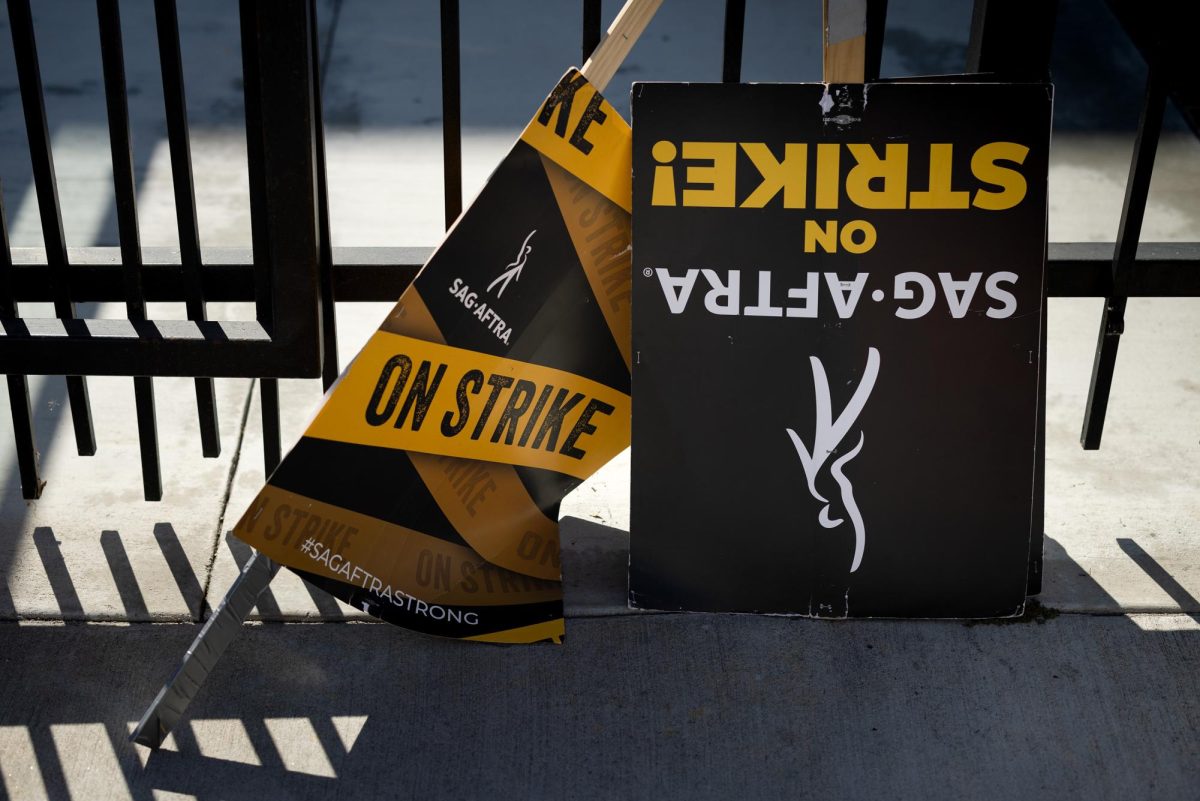Walkouts, protest marches, chanted slogans, and picket lines. From May to November of this year, members of the Writer’s Guild of America (WGA) and Screen Actors Guild (SAG-AFTRA) spent a combined six months and seven days on strike. The “double strike,” as it came to be known, was sparked by the failure of the Alliance of Motion Picture and Television Producers (AMPTP), the trade group for Hollywood producers and executives, to strike a satisfactory deal with the WGA regarding such issues as compensation and job security from artificial intelligence.
As a consequence of the historic strikes, 2023 saw a relative drought of content from major studios such as Disney, Warner Bros., and Universal Studios. The production of numerous films and television shows ground to a halt. Those movies that did release were faced with harsh criticism, especially as studios proposed ever more outlandish solutions to keep cranking out content without caving to the unions’ demands.
But even as all of this has taken place, most people seem to have felt little or no change in their own lives as a result of the strikes. Perhaps the next season of their favorite show was postponed, or a movie they were looking forward to was shelved, but on the whole, the effects of the strike appear to have hardly been felt outside of Hollywood. There’s been no real drought of easily available entertainment for the masses. This comes as something of a surprise. After all, Hollywood has been the dominant force in visual entertainment for the last century, and the name itself has become practically interchangeable with cinema. The thing is, there have always been alternatives
People have been finding ways to entertain each other for millennia; it’s a part of fundamental human nature. When humans and their ancestors weren’t hunting or picking berries, they were making jokes, playing music, and drawing paintings on cave walls. When Hollywood found itself unable to fill the demand for entertainment, that vacuum was swiftly filled by online content, indie films, video games, and even reruns of older media. The rise of streaming services has also devalued the importance of new cinema releases, as people can now get their fix for content with much greater ease.
Though Hollywood has established a near-monopoly on entertainment, it is not the end-all be-all of entertainment. In the past several years, mainstream cinema has seen a rapid decline into uninspired, empty, and repetitive storytelling which leaves audiences craving more and better content. It could be soundly argued that this deterioration is a direct consequence of writers and actors being underpaid, and thus unmotivated to work at their best. But be that as it may, the result is the same: Hollywood’s monopoly is showing cracks.
Of all of 2023’s major blockbuster films, only two, “Barbie” and “Oppenheimer,” can really be said to have succeeded, with the box office revenue for the former far exceeding $1 billion and that of the latter slowly creeping toward the same number. The rest, however, have not seen such success. The long-awaited fifth installment in the “Indiana Jones” series, for instance, only barely out-earned its production cost. Marvel’s latest theatrical release, appropriately titled “The Marvels,” ended its box office run as the lowest-grossing film in the studio’s history. And Disney, one of the single largest entertainment companies in the world, has lost anywhere between $460 million and $900 million in the past year. Where in years prior, such dismal numbers could be attributed to the havoc of COVID-19, it is becoming quite clear now that the best Hollywood has to offer isn’t good enough for audiences.
Simply put, the majority of the consumer base has grown tired of the redundant slop being served up to them. Add to that the severe blow dealt to Hollywood’s reputation by the strikes and their aftermath, and it’s clear that the giant is stumbling. Though it’s unlikely that it will fall any time soon, and chances are it’ll regain its footing with time and adapt to the new demands placed upon it, this stumbling serves as an important reminder. The world does not need Hollywood, and even while the giant continues to trudge along, it’s important to remember and value those hidden alternatives that can show us what it will not. People found ways to entertain one another long before Hollywood, and they will do so long after.





David Bohnet • Feb 9, 2024 at 9:47 am
Really though, how many sequels is too many? I feel like Hollywood got the point where they can’t green light ‘risky’ projects. To your point, they are just recycling the same slop as years past.